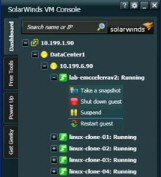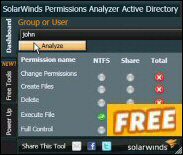Cleanup Tool for .NET Framework from Aaron StebnerDespite being an aficionado of PowerShell, I have never developed a ‘feel’ for .Net Framework. I simply accept that these building blocks are always there waiting to respond to my scripts. All I have to do is install the latest version of .Net Framework. However, the normally trivial task of installing can be a nightmare if you need to uninstall a previous version of .Net. The problem gets really tricky if you have applied an operating service pack or two in the meantime. Uninstalling .Net Framework is one of those problems that you never really believe exists until it happens to you. Fortunately, Paul DeBrino who is a regular contributor to this ezine, has researched the definitive tool to remove any version of .Net Framework – Aaron Stebner’s .NET Framework Cleanup Tool. I love the whole philosophy behind this tool, which is to get your machine in state where you can install a new version of .Net Framework. Understanding this means you are prepared to take the risk that it will remove shared registry settings, or even files that are used by other programs. For this reason, you should try a plain normal installation of the current version of .Net Framework first. Furthermore, given this warning, even gung-ho Guy would backup the machine before proceeding with Stebner’s cleanup tool. That said, once you install the latest version those updated files and registry settings should enable programs relying on .Net Framework to function correctly. Another mystery – at least to me – is that certain combinations of programs require you to install multiple versions of .Net Framework. Moreover this state of affairs is supported by Microsoft. As I hinted earlier, I regard .Net as a wonderful servant, but it does seem strange that the design team were allowed to get away with this multiple install ability, given the problem that uninstalling causes. Reader’s CommentI just wanted to let you know of possible problems with the dot net cleanup tool. I ran into a problem on one of my customers’ laptop. They had gotten a couple of viruses on their system and asked me to remove them. I cleaned them all up and had a problem that the dot net 3.1 patch kept on asking to be installed and would fail. I tried to uninstall the dot net and couldn’t, so I tried the cleanup tool that you talked about. To my delight it worked! Thanks again for the info… Well, at least until I tried to run windows update on the system again to see if any thing else needed to be updated. No luck there! Now the system was giving a denied access error during the update check. I finally had to go through and do a update of ACL lists to fix the problem. At least before the cleanup the windows update would run and tell me that the patches were there. Go figure! Maybe the cleanup tool is doing something to the ACL’s and maybe there is a fix to stop it. All’s well that ends well. Thanks Craig H. Footnote: Craig’s Reply Yes, I did, but I still had to fix the ACL’s. My email was just a little warning that problems could happen. Recommended: Solarwinds’ Permissions Analyzer – Free Active Directory Tool |


